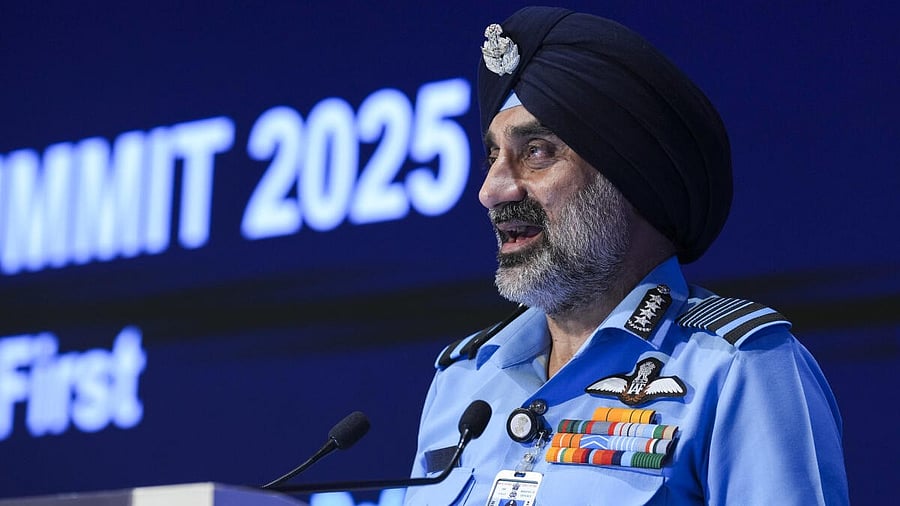
IAF Chief Air Chief Marshal A P Singh
Credit: PTI Photo
India's Chief of the Air Staff (CAS) Air Chief Marshal Amar Preet Singh on Saturday revealed that the Indian Air Force (IAF) shot down six Pakistani aircraft during Operation Sindoor.
Speaking at an event in Bengaluru, Singh also highlighted that one of the kills was the longest-ever recorded surface-to-air elimination by the IAF, and lauded the Russian defence equipment that helped in dominating the airspace.
"Our air defence systems have done a wonderful job. The S-400 system, which we had recently bought, has been a game-changer. The range of that system has really kept their aircraft away from their weapons like, those long-range glide bombs that they have, they have not been able to use any one of those because they have not been able to penetrate the system," the CAS said.
He cited electronic tracking data as confirmation of the strikes.
Among the aircraft shot down, five were Pakistani fighter jets while the other one was an AEW & C (Airborne Early Warning and Control) or an ELINT (Electronic Intelligence) aircraft, as per the CAS.
"...We have at least five fighters confirmed kills and one large aircraft, which could be either an ELINT aircraft or an AEW &C aircraft, which was taken on at a distance of about 300 kilometres. This is actually the largest ever recorded surface-to-air kill that we can talk about," Singh said.
The operation also resulted in a large number of Unmanned Aerial Vehicles (UAVs), drones and some of their missiles falling into the Indian territory. Based on specific intelligence, Singh said, the IAF decided to attack the airfield.
The air force chief also commended India's political leadership in the way the operation was handled. He said that there was no restrictions put on the armed forces, who were given the liberty to plan and execute the operation in ways they saw fit.
"A key reason for success was the presence of political will. There were very clear directions given to us. No restrictions were put on us... If there were any constraints, they were self-made... We decided how much to escalate... We had full freedom to plan and execute," Singh said.
He lauded how the Chief of Defense Staff (CDS) managed to create seamless coordination between the three wings of the Indian Armed Forces.
"Our attacks were calibrated because we wanted to be mature about it... There was a synchronisation between the three forces... The post of CDS made a real difference. He was there to get us together... NSA also played a big role in getting all the agencies...," the CAS also said.
"So the airfield was attacked and the main building where the planning goes on, which was also used as the civil terminal building at times. As far as the Sukkur airbase is concerned, we attacked the UAB hangar and radar site," he said. "You have the visuals available here — this is the hangar which is flattened, this is the radar site before and after. The AWC hangar was attacked again. Here we have very clearly an aircraft inside where the attack took place," he said. Regarding Sargodha, the IAF chief said, "We have grown up in our Air Force dreaming about days like this. Someday we will get a chance. Just so happens that I got a chance before my retirement. We attacked the airfield that had the very hard info on the F-16s," he added.
This is the first time the IAF has disclosed details of the damages inflicted to its Pakistani counterpart during the violent tensions at the northwestern border after the April 22 Pahalgam terror attacks.
However, Pakistan's Defence Minister Khawaja Asif on Saturday claimed that no aircraft of the military was hit or destroyed by Indian armed forces during the recent conflict.
(With inputs from agencies)
